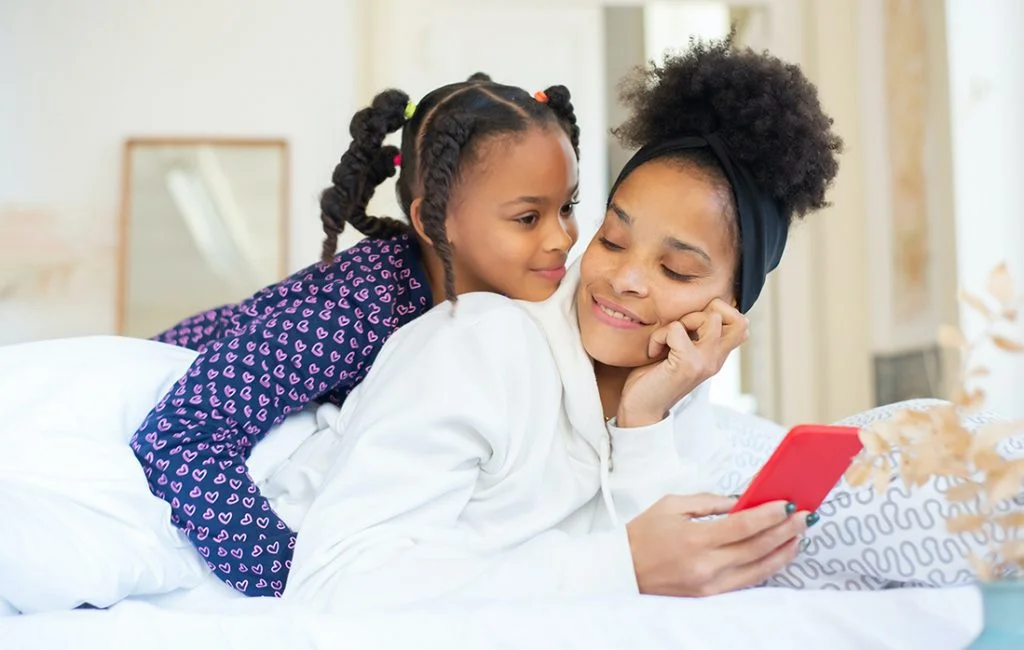
On the list of strange things people do in their sleep, becoming a scam victim is likely one of the most unfortunate. That’s what allegedly happened to Kelly Knipes, a 42-year-old mother from England who says she was scammed after responding to a suspicious text offering governmental financial assistance and giving out her banking details.
She started sleepwalking regularly after her first baby, Henry, was born in 2006, which she says eventually led to a sleep-shopping habit that cost her around £3,000 (about $3,800 US) on items like an in-ground plastic basketball court and hundreds of dollars worth of candy. According to Knipes, she also has sleep apnea, which adds to the issue.
Though sleepwalking is relatively rare, it’s even less likely that someone will shop or become a scam victim in their sleep. But however unbelievable, it’s far from the wildest incidence of parasomnia-induced behavior.
The Scam
Knipes responded in the night to a bogus text from an official-looking source claiming to be from the government. “I filled out a form after I got this text — I wouldn’t have replied to it if I was awake,” she told Essex Live News. (1)
The scam claimed the government owed her £400 to assist with her bills. “I gave them all my details, then when I woke up, they had taken £250 out my bank account,” she said. While she was able to recoup the money from her bank, the scammers likely sold her personal information, as there have been several other attempts to withdraw funds from her account, leading to several card cancelations.
Knipes says that her disorder has caused financial strain due to non-refundable purchases and not being able to return many of the items. But she has also suffered serious medical consequences, including an accidental overdose of her diabetes medication during pregnancy in 2015 after dreaming she was speaking to doctors. In the past, she’s woken up to open doors and windows and feel “drained” and “exhausted,” eventually leading to hospitalization.
She tries to focus on caring for her three sons and not let the stress affect her. “Everyone thinks it’s funny, but it’s not, some bits are, but some bits are quite serious,” she said. Six years after her diagnosis, Knipes still struggles with her sleep patterns, but she has more to worry about, with three children who need constant medical care for epilepsy and other issues.
“Giving out my details has had quite big consequences. But it’s the least of my problems, in the grand scheme of things, I just focus on my children. It’s just something that happens that I have to deal with,” she said.
What Can Trigger Sleep Shopping?
Kelly was diagnosed with parasomnia in 2018, which she believes was triggered by her obstructive sleep apnea. Sleep apnea causes breathing to stop during sleep, which can wake people suddenly. Knipes says her sleep apnea causes her brain to partially wake up and engage in activities like online shopping.
Alex Dimitriu, MD, who is dual board-certified in psychiatry and sleep medicine, explains parasomnias are disorders of confusional arousal, meaning that the person is half awake and half asleep when they act out — which can range from sleepwalking to sleep talking and night terrors. “It can be thought of as anything you might do almost “automatically” while half asleep,” he says. Generally, though, parasomnias tend to be more simple behaviors, such as incoherent sleep talking.
Adding sleep apnea to the mix can increase the risks of engaging in unwanted unconscious behaviors. Anything that disrupts sleep, including sleep apnea, pain, or noise, can cause confusional arousal, says Dr. Dimitriu.
But unless shopping is effortless—like a single click with prefilled shipping and payment info — it is unlikely to happen while you are half asleep, says Dr. Dimitriu. “You really need to be awake to complete forms [with] credit card info. However, if that is all prepopulated, someone half asleep could certainly pick up their phone and hit the “buy now’ button.” Searching for a particular item across various websites and completing complex forms, however, are not likely to happen when someone is half asleep, he says.
What Can Help Parasomnia
Using a continuous positive airway pressure (CPAP) device to prevent airways from closing can limit confusional arousal, and medications and supplements, the most common of which are benzodiazepines, antidepressants, Clonazepam, and melatonin, are often used to treat parasomnia.
Knipes started using a CPAP machine after a doctor uncovered her sleep apnea in 2018, but she tends to unconsciously remove it since it causes uncomfortable jaw locking. Sleep medications that prevent her from waking up are also not an option since her children may need help during the night.
“Regular bed and wake times and getting enough sleep — at least 7 hours for adults — are important,” says Dr. Dimitriu. It’s also best to avoid alcohol or sedatives at bedtime and to treat sleep apnea if it is present. “Parasomnias themselves are often not the main issue—the main question is what causes the person to have unstable sleep and wake up in the first place,” he says.
Cognitive behavioral therapy is an option for treating stress and insomnia, and though rare, it’s wise to take precautions in case behaviors become extreme or dangerous. Ensure your bedroom is safe, keep your devices locked up, and consider sleeping separately from a partner. Removing saved passwords and financial details from shopping websites may also be a good idea.
Sources
1. Reast, Amy; King, Mel; “Basildon mum with sleep-shopping disorder scammed after sharing bank details while asleep,” Essex Live; https://www.essexlive.news/news/essex-news/basildon-mum-sleep-shopping-disorder-9311349; May 29, 2024.
Dimitriu, Alex. Author interview. June 2024.


























